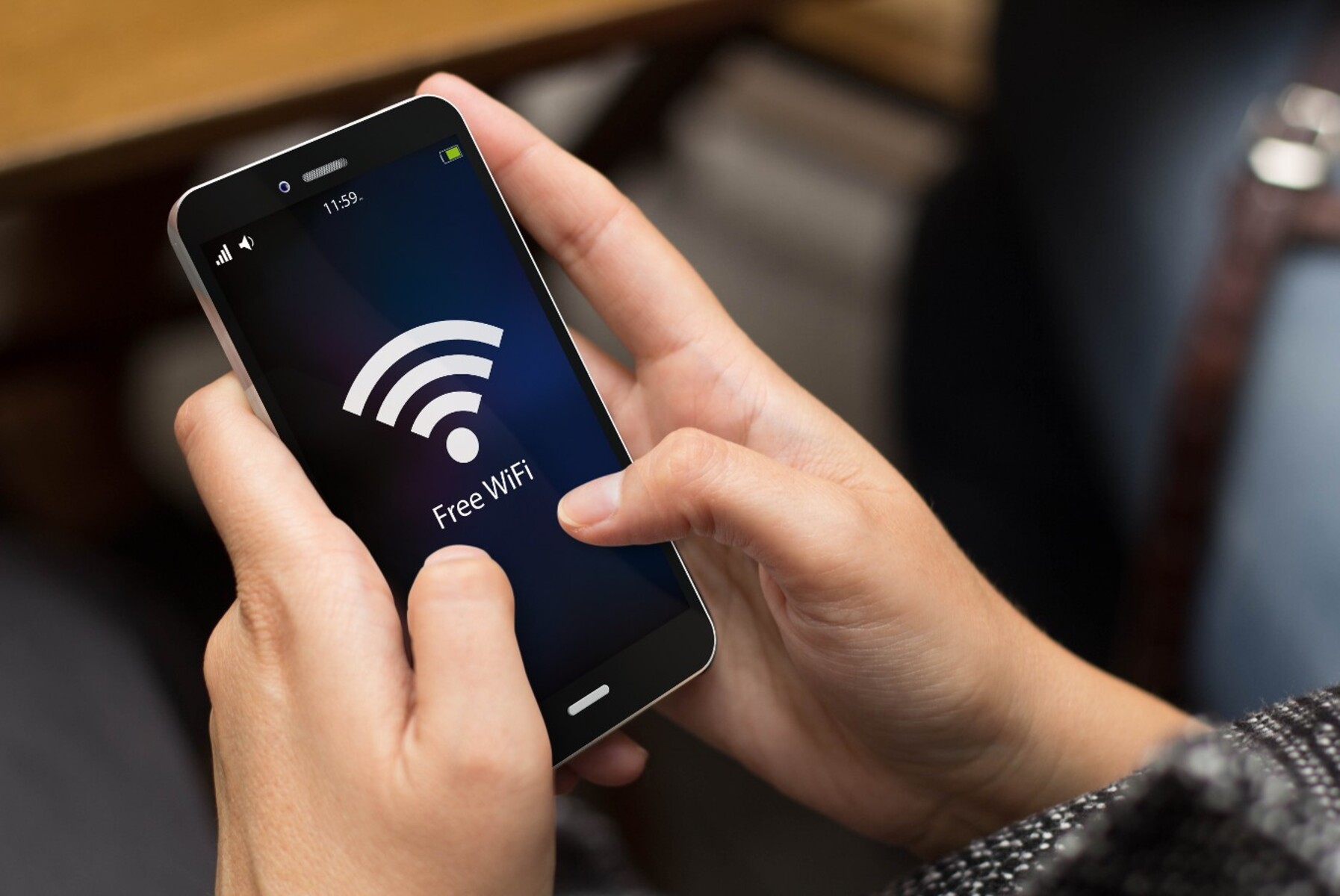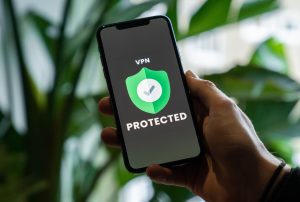Understanding the Risks of Using Public Wi-Fi
Public Wi-Fi hotspots are a convenient way to stay connected while on the go. However, it's crucial to understand the potential risks associated with using someone's hotspot, as they can leave your personal information vulnerable to security breaches. Here's a closer look at the risks involved:
-
Data Interception: When you connect to a public Wi-Fi network, your data is transmitted over the airwaves, making it susceptible to interception by cybercriminals. This means that any information you send or receive, such as login credentials, financial details, or personal messages, could be intercepted and exploited.
-
Malicious Hotspots: Cybercriminals can create fake Wi-Fi hotspots with names similar to legitimate ones, luring unsuspecting users to connect to these malicious networks. Once connected, hackers can eavesdrop on your online activities, steal sensitive information, or deploy malware onto your device.
-
Man-in-the-Middle Attacks: In a man-in-the-middle attack, hackers position themselves between your device and the hotspot, intercepting and potentially altering the communication between the two. This allows them to capture sensitive data without your knowledge.
-
Unencrypted Connections: Many public Wi-Fi networks do not encrypt the data being transmitted, leaving it exposed to anyone with the technical know-how to intercept and decipher the information.
-
Rogue Access Points: These are unauthorized wireless access points that appear to be legitimate, but are set up by attackers to capture and tamper with data transmitted over the network.
Understanding these risks is the first step toward safeguarding your data and privacy when using public Wi-Fi hotspots. In the following sections, we'll explore practical tips and strategies to ensure that you can use someone's hotspot safely without compromising your sensitive information.
Tips for Safely Using Someone’s Hotspot
While the risks associated with public Wi-Fi hotspots are real, there are several proactive measures you can take to mitigate these vulnerabilities and use someone’s hotspot safely. Here are some essential tips to consider:
- Verify the Legitimacy: Before connecting to a public Wi-Fi hotspot, confirm its legitimacy with the owner or establishment staff. Ensure that you are connecting to an authorized network and not a rogue hotspot set up by cybercriminals.
- Use Trusted Hotspots: Whenever possible, opt for hotspots provided by reputable establishments, such as cafes, hotels, or airports. These are more likely to have secure networks and take measures to protect their users’ data.
- Avoid Sensitive Transactions: Refrain from conducting sensitive transactions, such as online banking or shopping, while connected to public Wi-Fi. Wait until you are on a secure, private network to carry out these activities.
- Enable Firewall and Antivirus: Ensure that your device’s firewall and antivirus software are active and up to date. These security measures can provide an additional layer of protection against potential threats while using public Wi-Fi.
- Turn Off Sharing: Disable file sharing and AirDrop features on your device to prevent unauthorized access to your files and information while connected to a public hotspot.
- Use HTTPS Websites: When browsing the web, prioritize websites that use HTTPS encryption, indicated by a padlock icon in the address bar. This helps secure your communication with the website and reduces the risk of data interception.
- Stay Updated: Keep your device’s operating system and applications updated with the latest security patches. Regular updates help address known vulnerabilities and strengthen your device’s defenses.
- Monitor Your Connection: Be mindful of any unusual activity or pop-up messages while using a public hotspot. If something seems amiss, disconnect from the network immediately.
By implementing these tips, you can significantly reduce the likelihood of falling victim to security threats while using someone’s hotspot. However, for an added layer of protection, consider leveraging a Virtual Private Network (VPN) to secure your online activities and data transmission, as discussed in the following section.
Using a Virtual Private Network (VPN)
One highly effective way to enhance your security and privacy when using someone’s hotspot is by employing a Virtual Private Network (VPN). A VPN creates a secure, encrypted connection between your device and the internet, effectively shielding your online activities from prying eyes. Here’s how a VPN can bolster your safety:
- Encryption of Data: When you connect to a VPN, your data is encrypted, making it incomprehensible to anyone attempting to intercept it. This ensures that your sensitive information, such as passwords, credit card details, and personal communications, remains protected from potential eavesdropping on public Wi-Fi networks.
- Anonymous Browsing: By routing your internet traffic through a VPN server, your IP address is masked, enhancing your anonymity online. This prevents websites and online services from tracking your real location and browsing habits, adding an extra layer of privacy to your online presence.
- Bypassing Restrictions: In addition to security benefits, a VPN allows you to bypass geographical restrictions and access region-locked content or services. This can be particularly useful when traveling and needing access to websites or streaming platforms that may be restricted in certain locations.
- Protection on Public Networks: Whether you’re using a hotspot at a coffee shop, airport, or hotel, a VPN safeguards your data from potential threats posed by unsecured public Wi-Fi networks. It creates a secure tunnel for your internet traffic, mitigating the risks associated with data interception and unauthorized access.
- Enhanced Security for Remote Work: For professionals working remotely or accessing sensitive company resources while on the go, a VPN provides an added layer of security, safeguarding confidential business communications and proprietary information from potential breaches.
When selecting a VPN service, prioritize reputable providers that offer strong encryption, a strict no-logs policy, and a wide range of server locations. Additionally, ensure that the VPN client is compatible with your devices and offers user-friendly features for seamless integration into your online activities.
By utilizing a VPN, you can significantly fortify your defenses against the security risks associated with public Wi-Fi hotspots, enabling you to browse the internet and access online services with enhanced confidence and peace of mind.
Ensuring Secure Browsing and Data Protection
When using someone’s hotspot, it’s essential to implement measures that prioritize secure browsing and data protection. By adopting the following strategies, you can enhance the safety of your online activities and mitigate potential security risks:
- Utilize Two-Factor Authentication: Enable two-factor authentication (2FA) for your online accounts whenever possible. This additional layer of security requires a secondary verification step, such as a code sent to your mobile device, to access your accounts, reducing the risk of unauthorized access even if your login credentials are compromised.
- Employ Strong, Unique Passwords: Use complex, unique passwords for each of your online accounts. Consider utilizing a reputable password manager to generate and store your passwords securely, reducing the likelihood of unauthorized access to your accounts in the event of a security breach.
- Activate Device Lock Features: Ensure that your devices are protected with strong passcodes, biometric authentication, or other locking mechanisms. In the event of theft or loss, these security features prevent unauthorized access to your personal data and accounts.
- Regularly Back Up Your Data: Implement a routine backup schedule for your devices to safeguard your important files and data. In the event of a security incident or device compromise, having recent backups ensures that you can recover your essential information without significant loss.
- Exercise Caution with Email and Messaging: Be cautious when clicking on links or downloading attachments from unsolicited or unfamiliar sources. Phishing attempts and malware-laden messages can pose significant security threats, so exercise vigilance to avoid falling victim to these tactics.
- Stay Informed About Security Best Practices: Keep yourself updated on the latest security best practices and emerging threats. By staying informed, you can adapt your security measures to address new vulnerabilities and protect yourself from evolving cyber threats.
By integrating these practices into your online routine, you can bolster the security of your browsing activities and data, minimizing the potential impact of security breaches and unauthorized access. Additionally, remaining mindful of the information you share while using someone’s hotspot is crucial for safeguarding your privacy and personal data, as discussed in the following section.
Being Mindful of the Information You Share
When utilizing someone’s hotspot, exercising discretion regarding the information you share is paramount in safeguarding your privacy and personal data. By adopting a mindful approach to your online activities, you can minimize the risk of exposing sensitive information to potential security threats. Consider the following guidelines to maintain a cautious and informed stance while using public Wi-Fi:
- Limit Personal Data Sharing: Refrain from sharing unnecessary personal information while connected to public Wi-Fi networks. Be mindful of the data you input into websites, forms, or online platforms, and avoid divulging sensitive details unless absolutely necessary.
- Avoid Public Wi-Fi for Sensitive Communications: When engaging in confidential or sensitive communications, such as discussing personal matters, sharing financial details, or conducting private business conversations, opt for secure, private networks rather than public hotspots.
- Exercise Discretion on Social Media: Be cautious about posting location-specific updates or sharing detailed personal information on social media platforms while connected to public Wi-Fi. Limiting the exposure of such details can help mitigate the risk of unauthorized access or targeted attacks.
- Review App Permissions: Regularly review the permissions granted to mobile apps on your devices. Restrict unnecessary access to sensitive data, such as location information, contacts, and personal files, to minimize the potential impact of security breaches.
- Use Encrypted Communication Platforms: When engaging in private conversations or sharing sensitive information, opt for encrypted communication platforms and messaging apps that prioritize end-to-end encryption. This ensures that your conversations remain private and secure from external interception.
By adopting a mindful and discerning approach to the information you share while using someone’s hotspot, you can proactively mitigate the risk of unauthorized access to your personal data and communications. These practices contribute to a more secure and privacy-conscious online experience, aligning with the overarching goal of maintaining a vigilant stance against potential security threats in public Wi-Fi environments.


